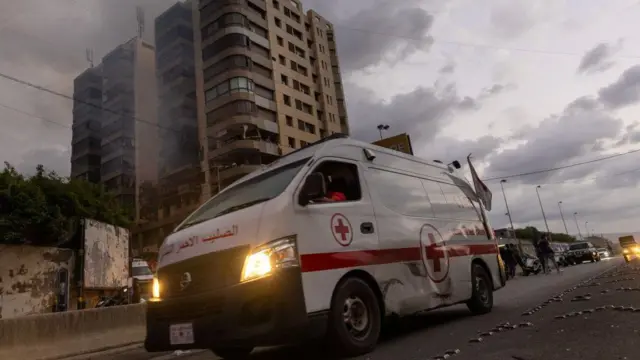Alarming Impact on Health Care in Lebanon
Since the escalation of conflict on 7 October 2023, Lebanon has experienced a significant number of attacks on health care, resulting in one of the highest death tolls for health workers and patients in active conflicts worldwide. Of the 137 reported attacks on health facilities, 65 (47%) have led to fatalities, which is notably higher than the global average of 13.3%. Between 7 October 2023 and 18 November 2024, Lebanon witnessed 226 deaths and 199 injuries among health workers and patients.
Comparative Data: Lebanon, Gaza, and Ukraine
The figures in Lebanon are particularly striking when compared to other active conflict zones. In the occupied Palestinian territories (oPt), only 9.6% of health attacks resulted in deaths, while in Ukraine, the death rate for health workers and patients was lower. These statistics highlight the exceptional severity of the situation in Lebanon, where attacks on health care are disproportionately fatal.
International Humanitarian Law and Health Care Protection
International humanitarian law mandates that health workers and facilities should be protected during armed conflicts, prohibiting attacks on medical staff and infrastructure. WHO representatives have emphasized that depriving civilians of access to health care and targeting health workers is a clear violation of international law. Dr. Abdinasir Abubakar, WHO’s representative in Lebanon, stated that the ongoing violence undermines the ability of health systems to respond to humanitarian needs, particularly in conflict zones where health services are already overstretched.
The Long-Term Consequences for Lebanon’s Health System
In addition to the immediate loss of life, the long-term consequences of these attacks are devastating. Health facilities and personnel are essential not only for immediate care but also for ongoing medical services such as maternal care, immunization, and treatment for chronic conditions. As of November 2024, 15 out of Lebanon’s 153 hospitals are either closed or partially functioning, with some regions, such as Nabatieh, losing up to 40% of their hospital bed capacity.
Dr. Hanan Balkhy, WHO’s Regional Director for the Eastern Mediterranean, explained that the loss of health workers and the destruction of medical infrastructure have a far-reaching impact on the country’s ability to recover and provide essential services in the aftermath of the conflict.
Global Impact and Calls for Action
Globally, between 1 January 2024 and 18 November 2024, there were 1,246 reported attacks on health care, resulting in 730 deaths and 1,255 injuries. The WHO’s Surveillance System for Attacks on Health Care (SSA) aims to monitor these attacks, identify patterns, and advocate for stronger protections for health workers and facilities. The recent crisis in Lebanon underscores the urgent need for international action to safeguard health care workers and institutions in conflict zones.
The ongoing attacks on Lebanon’s health system not only result in immediate losses but also hinder the country’s capacity to address long-term health needs. As Dr. Balkhy concluded, these attacks represent not only a loss of life but also the destruction of vital resources and years of investment, further straining an already fragile system.



